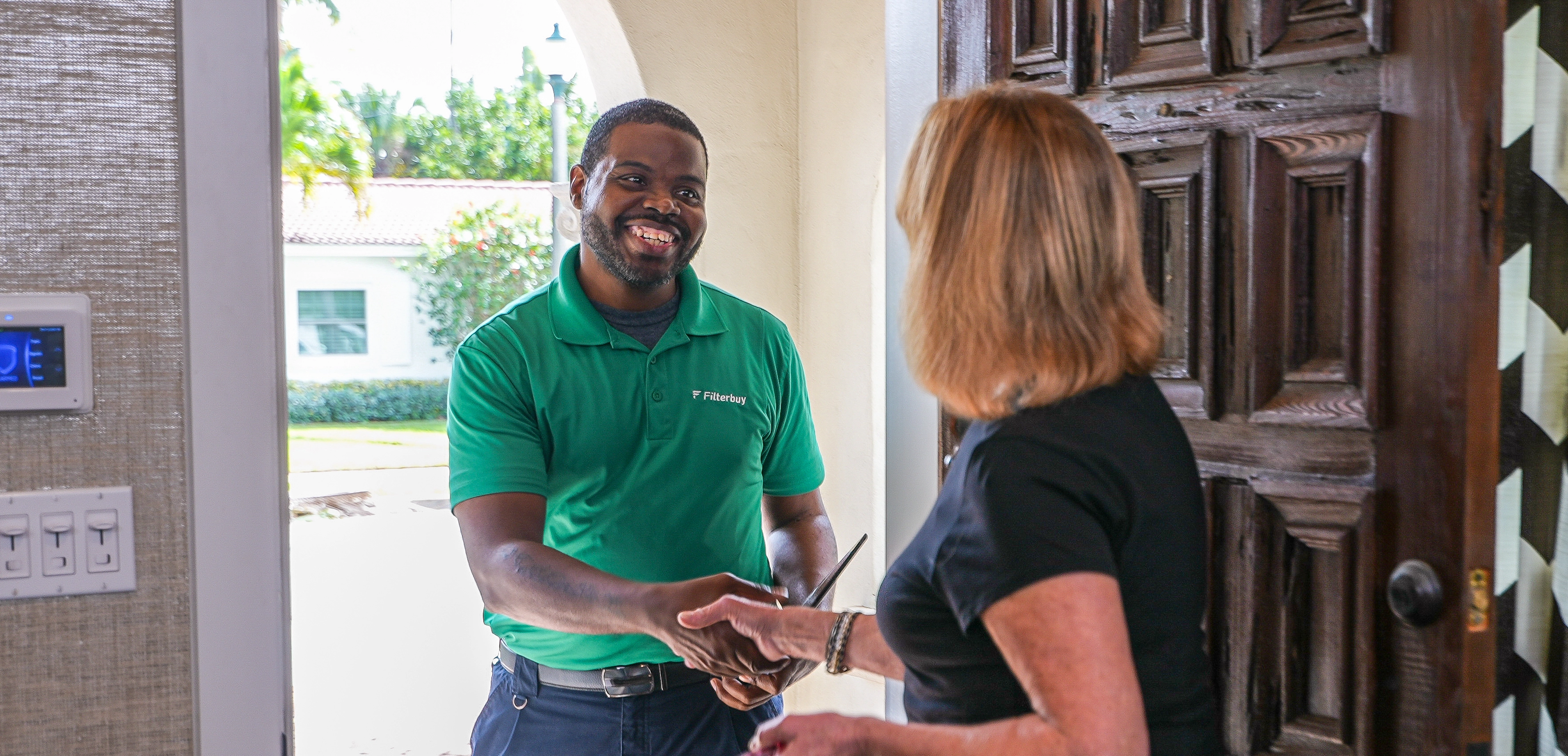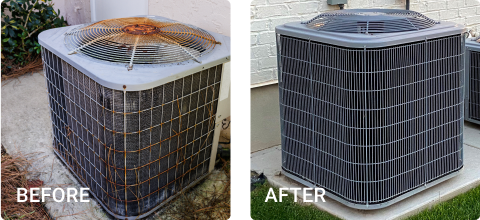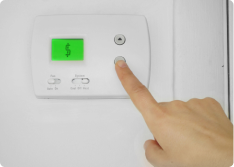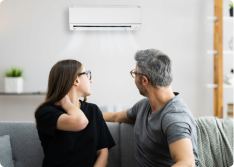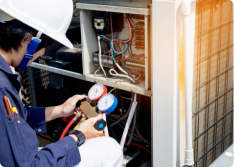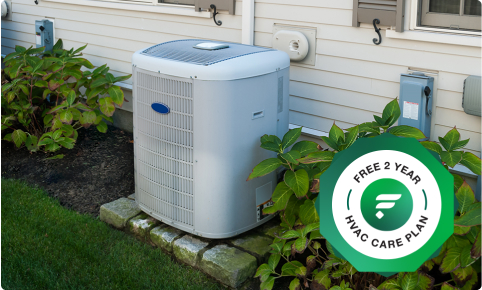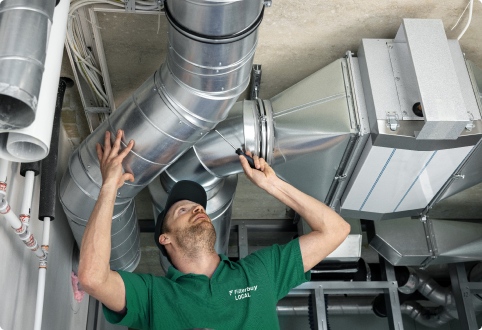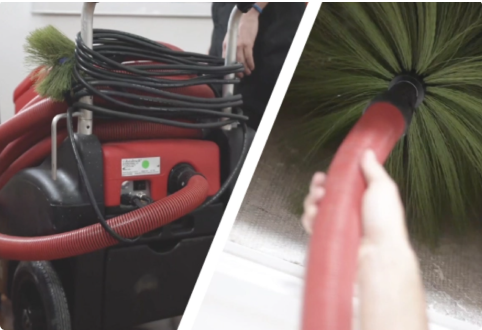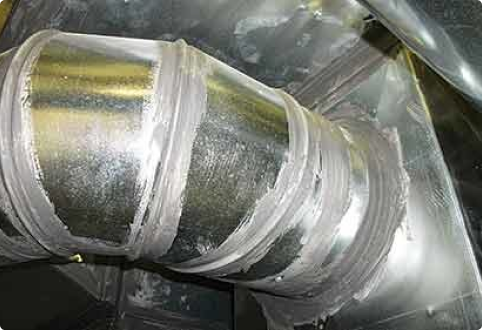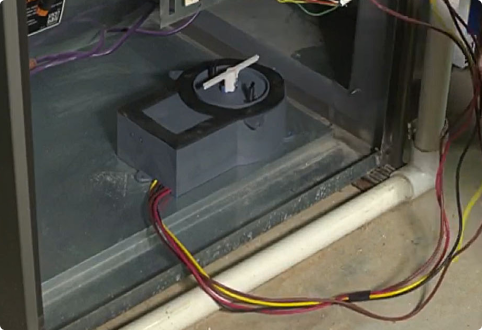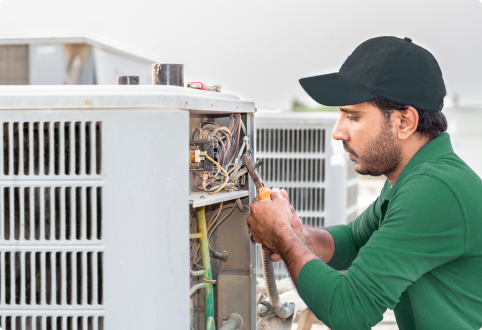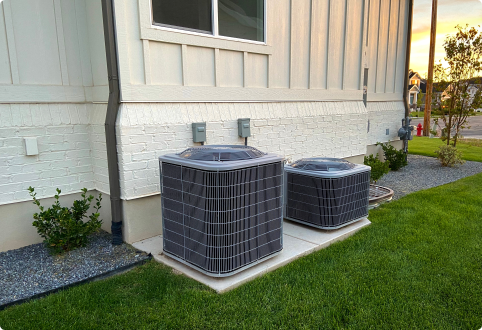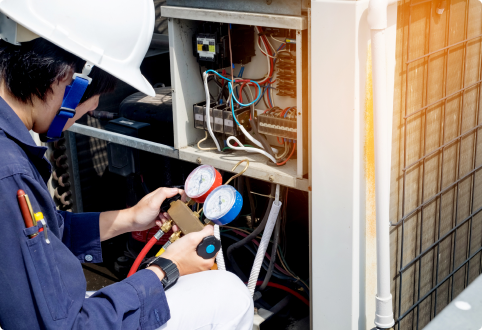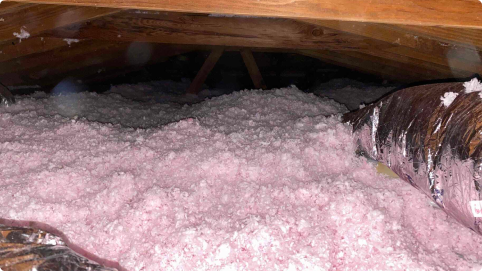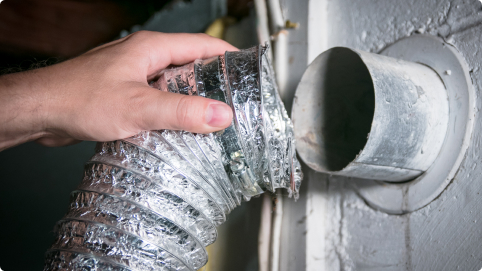Welcome to Filterbuy HVAC Solutions, the best HVAC system installation service company proudly serving in and near the greater Cooper City, FL area. Please let us know how we can help solve your Cooper City HVAC system installation needs with professional, affordable, and fast residential and commercial HVAC services by getting a free online quote or by giving our friendly HVAC specialists a call. We look forward to hearing from you!
HVAC Installation Cooper City
The scorching summer sun in Cooper City, FL is enough to make anyone melt like an ice cream cone. In this unbearable heat, the only thing that can offer solace and respite from the sweltering temperatures is a properly functioning HVAC system. But how does one get access to such life-saving technology? The answer lies with the professionals who specialize in HVAC installation in Cooper City! These experts are like modern-day superheroes, swooping in to save their clients from the clutches of extreme weather conditions. By offering quality services at competitive prices, they have earned their place as the go-to team for all air conditioning-related needs.
In this article, readers will gain insight into what it takes to install a reliable HVAC system in Cooper City. They will learn about the different types of systems available, industry standards for choosing them, tips on hiring certified technicians, and much more. With so many factors involved in making sure your home gets cooled down effectively during hot summer days, having all the necessary information in one place could be invaluable when it comes time to make decisions regarding HVAC installation in Cooper City.
So if you're looking for comprehensive coverage on everything there is to know about keeping cool while living in Cooper City, look no further than this article which covers all aspects of setting up an effective HVAC system!
1. Benefits Of HVAC Installation In Cooper City
The installation of HVAC (Heating, Ventilation, and Air Conditioning) systems in Cooper City offers a variety of benefits that can be enjoyed by homeowners. Firstly, installing an efficient system will improve the comfort levels within the home due to advanced technology and more precise climate control options. This is beneficial for those who suffer from allergies or asthma as modern air quality filters are capable of removing dust particles, pollen, and other pollutants from the air. Furthermore, newer systems can save energy costs by using less electricity than traditional models since they often come with optional features such as programmable thermostats which allow users to adjust their heating and cooling settings to match their lifestyle needs.
Another advantage to installing an HVAC system in Cooper City is its potential impact on property value. As long as it is properly maintained and regularly serviced, this type of investment could increase the market value of a home significantly upon resale. Additionally, owners may benefit from reduced insurance premiums if they have recently upgraded their existing units because many insurers recognize these improvements as mitigating factors when calculating rates.
Finally, proper maintenance is essential for any HVAC system installed in Cooper City. Regularly cleaning and replacing parts like air filters helps ensure that the unit continues to operate efficiently without consuming too much power while also prolonging its life expectancy over time. Homeowners should consider scheduling routine check-ups at least twice per year with qualified professionals who can diagnose problems early before costly repairs become necessary down the line. With careful planning and proper execution, investing in an HVAC system in Cooper City promises tangible rewards both now and into the future.
2. Types Of HVAC Systems Available
As the world of technology rapidly advances, it is no surprise that HVAC systems have been a part of this revolution. In Cooper City specifically, there are multiple types available to best suit any space and budget. Let's take a look at some of them:
• Split System - This type of system consists of an indoor unit paired with an outdoor unit connected by refrigerant lines. It can cool or heat as needed in one room or several rooms.
• Packaged Systems - These come in both air-source and geothermal options. They are self-contained units outside your home on a concrete slab where all components are housed including heating, cooling, fan motors, and filters.
• Ductless Mini-Split Systems – A great option when adding onto existing ductwork isn't feasible or desired. It has two parts: an outdoor compressor/condenser and an indoor evaporator unit that can be mounted high up on the wall out of sight or within ceiling cavities.
• Heat Pump Systems – The most efficient system you could choose due to its ability to provide both heating and cooling from one source depending on the season. It also operates more quietly than other models giving you peace while still delivering comfort throughout your home year-round.
The variety found in these HVAC systems offers flexibility for each homeowner’s needs; however, before making a decision about which type would work best for their home environment, there are certain factors to consider...
3. What To Consider Before HVAC Installation
Installing an HVAC system is like piecing together a puzzle. All the parts must fit perfectly for them to work correctly and efficiently. Before embarking on such a venture, five main considerations should be taken into account when installing an HVAC system in Cooper City.
The first step of any installation project is deciding which type of system best fits your needs. There are several options available, from air conditioners, heat pumps and furnaces to ductless systems and geothermal heating units. Each has its unique features and benefits, so it's important to assess your requirements before making a decision.
The second point to consider is energy efficiency ratings. A higher rating means lower operating costs over time, so make sure you research each unit thoroughly before investing in one. Additionally, choosing an Energy Star-certified model can help reduce long-term expenses even further by providing additional tax incentives or rebates as well as improved indoor air quality.
Thirdly, proper ventilation should always be considered before installation. Not only does this ensure optimum performance of the equipment but also provides healthy levels of fresh air throughout the home or business premises. Installing vents and fans in appropriate locations helps to maximize airflow while avoiding potential problems with condensation buildup or moisture accumulation in hard-to-reach areas.
Lastly, noise levels play a major role when selecting an HVAC system suitable for your space - whether residential or commercial - since excessive noise can disrupt daily activities as well as cause stress and anxiety if not monitored closely enough. Examining reviews online is a great way to learn about how quiet different models are compared to others within their range; however, nothing beats hearing them firsthand during test runs at local showrooms whenever possible!
With all these factors taken into consideration beforehand, one will have greater peace of mind knowing they have made the right choice for their specific situation when looking for cost-effective HVAC installation in Cooper City
4. Cost Of HVAC Installation In Cooper City
The cost of HVAC installation in Cooper City can vary depending on the size and complexity of the project. It is important to get several estimates from qualified professionals before making a decision. The average price for an air conditioning unit alone ranges from $3,500 to $7,000 with additional costs associated with installation and any necessary repairs or upgrades. Depending on the type of system being installed, there may also be ductwork involved which increases the labor time and materials costs.
In addition to labor and material expenses, it is important to factor in other potential costs such as permits or inspections that might be required by local building codes. Certain brands may require special parts that are not readily available off the shelf which could lead to further delays and higher prices overall. It is always advisable to speak to experienced contractors who can provide accurate estimates based on your specific needs.
It is beneficial to know what options are available when budgeting for HVAC installation in Cooper City so you can make informed decisions about how best to proceed. Being aware of all potential hidden costs upfront will help avoid any surprises during the process while ensuring your comfort and peace of mind moving forward. With this information at hand, homeowners can begin preparing for their HVAC installation smoothly and confidently.
5. Preparing For HVAC Installation In Cooper City
Preparation for the HVAC installation in Cooper City is a crucial step to ensure the process runs smoothly. Taking care of necessary tasks beforehand will lay the foundation for success. Like building blocks, completing each task one at a time creates an orderly structure that can be relied upon during installation.
To prepare well, here are five key steps:
•Make sure you have all required permits and paperwork completed.
•Check with local authorities if there are any restrictions or requirements that must be met before installing your system.
•Inspect your home’s interior and exterior spaces to assess what equipment is needed and where it should be installed.
•Research different models available on the market so you can make an informed decision about which product best suits your needs.
•Schedule a pre-inspection of your home by a professional HVAC technician to identify potential problems or areas of concern before beginning installation.
These preparatory measures help create an organized plan of action that expedites the installation while minimizing obstacles along the way. By taking this approach, you can rest assured knowing that every detail has been taken into consideration thus setting yourself up for optimal results with minimal disruption to daily routines.
6. Common Issues During HVAC Installation
The process of HVAC installation in Cooper City can be complex and time-consuming. Several common issues can arise during the installation process, ranging from inadequate insulation to refrigerant leaks. Homeowners need to understand these potential problems before they begin their projects.
Insufficient insulation is a major issue when installing an HVAC system, as it affects both energy efficiency and comfort levels. If there is not enough insulation around ducts or other components, airflow will be restricted and temperatures may fluctuate throughout the home. Additionally, air leakage into attics or crawl spaces can cause significant heat loss if left unchecked. To prevent this problem, all areas should be inspected by a professional contractor before installation.
Inadequate ventilation presents another challenge during HVAC installations in Cooper City. Without proper ventilation, moisture buildup inside the home could create mold or mildew growth which poses health risks as well as structural damage to walls and ceilings. Additionally, too little fresh air circulating through the house will reduce indoor air quality creating a stuffy environment with unpleasant odors. Homeowners should ensure adequate ventilation has been installed before any further steps are taken in the installation process.
Proper assessment of these common issues can help ensure the successful completion of an HVAC installation in Cooper City and provide homeowners with maximum energy savings and comfort over the lifetime of their system. As such, careful attention must be paid to each step to avoid costly repairs down the road due to negligence on behalf of either the homeowner or installer During this phase of preparation, factors that affect costs such as size requirements and location should also be considered carefully...
7. Factors That Affect The Cost Of HVAC Installation
When installing a heating, ventilation, and air conditioning (HVAC) system in Cooper City, the cost of installation can vary immensely depending on several factors. To understand these influences, it is important to consider not only the materials needed for the job but also labor costs that may be incurred along the way. Alluringly enough, with some knowledge about these contributing elements, one can anticipate what expenditures are likely to arise when considering an HVAC installation project.
To begin with, labor costs associated with professional HVAC technicians must be taken into account. This encompasses both the hourly rate charged by each technician as well as additional fees that may be accumulated due to time spent on-site or emergency services provided outside of normal working hours. Moreover, many subcontractors have different rates depending on their level of expertise; this means higher quality workmanship often comes at a greater expense.
Next up are material expenses related to the installation process itself. These include supplies such as pipes and wires necessary for connecting the various components as well as any other equipment required for the proper operation of the HVAC unit itself. Additionally, if any parts need replacing during or after installation then these too will add to the overall costs incurred throughout the project. Furthermore, there may even be extra charges applicable should special orders need to be placed from suppliers as certain items are out-of-stock in stores near Cooper City.
Awareness of all possible outlays, therefore, plays a large role when budgeting for an upcoming HVAC installation project in Cooper City; understanding how different variables can affect total costs helps individuals plan effectively and prepare adequately before commencing any work within their premises. With consideration given to potential labor costs and material expenses alike, those looking to install an HVAC system can rest assured they're making informed decisions while managing their finances accordingly - enabling them to make use of professional HVAC installation services without worrying over potential financial blowouts down the line.
8. Professional HVAC Installation Services In Cooper City
Proper installation of HVAC systems is vital to ensure that the system runs efficiently and safely. Professional HVAC installation services play an important role in providing Cooper City residents with reliable, safe, and cost-effective heating, ventilation, and air conditioning solutions. The following paragraphs will discuss how professional HVAC installation services can benefit Cooper City homeowners.
When considering a new HVAC system for your home or business it is essential to seek out experienced professionals who are trained in all aspects of the field. Professionals have extensive knowledge of different types of HVAC systems and their components, allowing them to identify any potential problems before they become serious issues. Additionally, they know how these systems operate so they can provide advice on best practices for maintenance and repair work if necessary. Furthermore, professionals can also advise customers regarding energy efficiency improvements which may be available through upgrades or additional insulation materials.
In addition to this expertise, there is also the assurance that comes from working with knowledgeable professionals who are committed to delivering quality service every time. By hiring qualified installers you can trust that your new equipment will be installed correctly according to manufacturer guidelines as well as local building codes. This enhanced level of safety reduces the chance of malfunctioning equipment leading to costly repairs down the road and keeps your family safe from any potentially hazardous situations due to poor installations.
Hiring certified professionals for their experience and expertise provides peace of mind when choosing a reliable source for installing an efficient HVAC system in Cooper City homes or businesses. With a wide range of services available at competitive prices, it is easy to find a company offering high-quality installation services close by that meets individual needs and budgets alike. Transitioning into proper maintenance ensures long-term performance; therefore it is always beneficial to hire experienced technicians who specialize in preventative care tips for HVAC systems within households or commercial settings.
9. Maintenance Tips For HVAC Systems
Do you know the importance of regularly maintaining your HVAC system? Without regular maintenance, a system may not work as efficiently, leading to higher energy bills. Additionally, it can lead to more frequent repairs and shorten its lifespan. Therefore, proper maintenance is essential for the efficient and cost-effective performance of an HVAC system.
Maintaining an HVAC system begins with scheduling annual inspections by a licensed technician. During these visits, they check the overall condition of the system and make necessary adjustments or replacements if needed. Further, they inspect all components such as fans, filters, motor belts, etc., clean them where required, and lubricate moving parts. This helps prevent any damage that could be caused by dirt accumulation in the air ducts or malfunctioning due to lack of lubrication.
Moreover, replacing dirty air filters on time is also important since clogged filters reduce airflow which further affects energy efficiency and comfort levels inside homes and buildings. In addition to this, checking refrigerant levels during service appointments helps avoid potential issues associated with low refrigerant levels like reduced cooling capacity or frozen coils.
It is evident from above that regular preventive maintenance keeps your HVAC system running smoothly for years at optimal energy consumption levels without affecting indoor comfort conditions significantly.
10. Advantages Of Working With A Professional HVAC Installer
The advantages of installing an HVAC system by a professional are invaluable. It is essential to consider the benefits when deciding whether to hire one or not. Without a doubt, entrusting your home’s air conditioning needs in Cooper City to qualified personnel offers many advantages that will improve the quality and longevity of your investment.
Firstly, experienced professionals have access to the latest models of HVAC systems on the market, which offer superior energy efficiency compared to older models. With their expertise, they can provide personalized advice tailored specifically to you and your family’s requirements. Moreover, working with experienced technicians ensures that all necessary permits and warranties are obtained for the installation and operation of your HVAC system.
In addition, opting for a licensed contractor provides peace of mind knowing that all aspects of the job will be completed according to safety regulations and industry standards. Professional installers also guarantee the correct sizing of components as well as proper wiring connections between them so your unit works safely and efficiently while reducing energy bills over time. Furthermore, having skilled technicians work on your equipment minimizes the chances of breakdowns due to improper setup or maintenance errors down the road.
TIP: Make sure to research local contractors before hiring; ask questions such as experience level, insurance coverage, and any applicable references from past customers. Asking these questions helps ensure you find a reliable expert who meets all your needs for successful installation and long-term serviceability in Cooper City.
Frequently Asked Questions
How Often Should I Replace My HVAC System?
Modern HVAC systems are essential for keeping indoor temperatures comfortable in any season. As with any system, regular maintenance and replacements of parts or components are necessary to ensure optimal performance and efficiency. This raises the question: how often should one replace their HVAC system when living in Cooper City?
The answer depends on several factors, such as age, usage, type, and environmental conditions. Generally speaking, an average lifespan of 10-15 years can be expected from most HVAC systems installed in Cooper City. However, this figure may vary depending on the particular model; some models may last longer than others due to superior design or materials used during manufacturing. Furthermore, if the unit has been properly maintained over its lifetime then it could potentially last even longer. On the other hand, if a system is subject to heavy wear and tear or not serviced regularly then replacement may be required sooner than expected.
Finally, there is no set rule regarding when a homeowner must replace their existing HVAC system since each situation will differ based on individual needs and circumstances. It would therefore be advisable to consult a professional who specializes in HVAC installation in Cooper City for further advice on how best to approach this issue.
Can I Install An HVAC System Myself?
The question of whether one can install an HVAC system is a complex and weighty one, requiring deep consideration before any decision is made. On the surface, it may appear to be a simple task that anyone could do with a few days' worth of research and some DIY skills - but such simplicity belies the sheer complexity and potential danger associated with installing an HVAC system in Cooper City.
For starters, the sheer multitude of components required to properly install an HVAC system must be taken into account; from electrical wiring to plumbing connections, ductwork installation, thermostat calibration, refrigerant management, and gas line safety, there are countless factors to consider when attempting such a project. In addition, if not done correctly or safely, the consequences of mistakes could range from minor issues like noise complaints to destruction of property or even death due to fire or carbon monoxide poisoning.
Given these realities then, it becomes clear that while it would certainly be possible for someone living in Cooper City to attempt this kind of home improvement project on their own – caution should still be exercised in doing so as mistakes made during installation have serious repercussions. Therefore, hiring experienced professionals who understand both local regulations as well as best practices for safe installations should always remain a top priority when considering installing an HVAC system oneself.
What Size HVAC System Should I Install?
As the summer heat bears down on Cooper City, FL, people are looking to make sure their homes are as comfortable as possible. One of the most important steps is selecting and installing an HVAC system that fits your needs. The size of the HVAC air conditioner chosen will determine how well it can cool a home; too small, you won’t be able to keep up with demand during peak hours – while too large means increased energy costs.
Fortunately, there are several ways to figure out what size unit you need for installation in Cooper City. First off, square footage must be taken into account; larger rooms require more cooling power than smaller ones. In addition, local climate conditions should also be considered - if temperatures don’t drop much at night, then having an oversized unit may not be beneficial. Lastly, whatever type of fuel source used (electricity or gas) dictates different capacities for each model within a certain range - so researching these factors before making a purchase is key!
When all these details have been determined and documented appropriately, shoppers can confidently select from one of the many options available today. Whether searching online or through brick-and-mortar retail stores in Cooper City, they can find quality units that fit their budget and provide efficient cooling year-round. Ultimately, careful consideration will result in a satisfying investment that keeps them comfortable without breaking the bank!
Are There Any Rebates Available For HVAC Installation?
Ironically, the costs associated with installing a reliable HVAC system in Cooper City can be quite hefty, given the fact that energy efficiency and comfort are of such importance to people. Fortunately, there are several rebates available for those seeking to install an HVAC unit in their home:
• Tax credits – The federal government offers tax credits on certain types of HVAC systems; these credits could reduce your overall cost by up to 10%.
• Utility company rebates – Certain utility companies offer incentives when you purchase energy-efficient products or services like HVAC installation. These vary from program to program but can result in up to $150 back.
• Local grants and programs – Cities often have programs targeted towards helping individuals upgrade their homes with more energy-efficient options. This includes HVAC installation as well as insulation, windows, and other upgrades.
These resources provide financial assistance which helps make it easier for homeowners to invest in high-quality equipment that will last them many years while maintaining comfortable temperatures throughout all seasons. Furthermore, they also help conserve energy by making sure the installed units run optimally according to manufacturer specifications. With careful research into potential rebate sources, customers can look forward to having a properly functioning HVAC system at a fraction of the original cost!
Is There A Warranty On HVAC Installation Services?
According to the Department of Energy, an estimated 80% of homes in America have inefficient HVAC systems. This statistic is a stark reminder that many homeowners are not taking advantage of energy-saving opportunities when it comes to their HVAC systems. With that said, finding reliable installation services and ensuring proper warranties for those services is essential for efficient operation and cost savings over time.
When considering any potential HVAC installation service provider in Cooper City, Florida, it's important to understand what kind of warranty they offer for their work. Generally speaking, most providers will provide some form of coverage on parts used during the installation process as well as labor costs associated with the job. It's also common practice for these companies to guarantee any repairs or replacements necessary within a certain timeframe after the completion of the project.
It's important to thoroughly research any HVAC installation company before signing up for their services. Carefully review specific details such as coverage areas and length of time covered by the warranty provided. Many reputable companies will include clauses specifying how long they'll cover parts, labor costs, and repair/replacement fees - all of which can be invaluable if unexpected issues arise later on down the line. Knowing your rights ahead of time can save considerable amounts of money in the long run.
What Does a New HVAC System Cost in Florida?
The financial implications of installing a new HVAC system in Florida are a topic of considerable interest to homeowners, real estate investors, and property developers alike. The cost of such an endeavor will be dictated by a myriad of factors, including the property size, the type of HVAC system chosen, and the specific installation requirements of the property, among others. It's a complex equation and one that requires a detailed analysis to accurately assess. As we proceed, we will unravel these variables and help you get a clearer perspective on the potential investment needed for a new HVAC system in the Sunshine State.
Understanding HVAC System Costs in Florida
To accurately assess the cost of a new HVAC system in Florida, it is critical to consider several key factors that can significantly influence the overall expense. These include the cost factor analysis, which evaluates variables such as system type, size, and installation complexity. Additionally, understanding seasonal pricing trends can help predict cost fluctuations throughout the year.
How Much Is a New AC Unit for a 1500 Sq Ft House in Florida?
The cost of installing a new air conditioning unit in a 1500 square foot house in Florida can vary significantly, influenced by a myriad of factors including the type of unit, the brand, the complexity of the installation process, and potential additional costs such as ductwork modifications. As this is a substantial investment often entailing intricate details, conducting comprehensive research and obtaining multiple quotes is crucial to ensuring you are receiving the best value for your money. We invite you to explore further as we dissect these variables and provide a clearer perspective on the potential costs and considerations involved in such an undertaking.
Understanding AC Unit Costs
To fully comprehend the financial implications of purchasing a new air conditioning unit for a 1500 sq ft house in Florida, it's crucial to delve into the varying factors that influence AC unit costs. Examining the cost variables, which include unit size, brand, and installation complexity, as well as keeping an eye on current pricing trends, will help prospective buyers make an informed purchase decision.
What Is the Best Type of AC Unit for Florida?
In considering the unique climate of Florida, characterized by its humid subtropical and tropical climates, the selection of an air conditioning unit transcends mere convenience and steps into the realm of necessity. The relentless heat, combined with soaring humidity levels, can create an uncomfortable indoor environment, significantly affecting the overall quality of life. Hence, the question arises: what is the most suitable type of AC unit for the Sunshine State? In this analysis, we will carefully evaluate various types of AC units, taking into account important factors such as energy efficiency, durability, cooling capacity, and cost-effectiveness. We aim to provide a comprehensive guide that will assist you in making an informed decision, ensuring your home or business remains a cool oasis amidst the Florida heat.
Understanding Florida's Unique Climate
To select the most suitable AC units for Florida, it is essential to first comprehend the unique climatic conditions prevalent in the state. The impact of humidity and sun intensity are significant factors to consider. High humidity levels necessitate units with effective dehumidification processes. Meanwhile, intense sun exposure demands units designed to withstand extreme heat.
How Often Should You Replace Your AC Unit in Florida?
In the state of Florida, which is known for its warm climate and high humidity, the importance of a well-operating air conditioning unit cannot be understated. However, the question looming on many homeowners' minds is: how often should you replace your AC unit in this region? The frequency of AC replacement is influenced by several variables, including the unit's age, efficiency, and the frequency of maintenance services. This critical topic warrants a thorough exploration to help homeowners make informed decisions about their cooling systems, ensuring optimal comfort and cost-effectiveness in their households.
Understanding AC Unit Lifespan in Florida
Given the intense heat and humidity in Florida, it is essential to understand that the average lifespan of an AC unit in this region is typically between 10 to 15 years, depending on maintenance and usage. Lifespan factors, such as the unit's model and installation quality, significantly influence this timeline. Moreover, regular maintenance can dramatically impact the unit's longevity, highlighting its critical importance.
Is It Worth Upgrading From 14 SEER to 16 SEER?
The debate surrounding the value of upgrading from a 14 SEER (Seasonal Energy Efficiency Ratio) to a 16 SEER air conditioning unit continues to engage both homeowners and HVAC professionals alike. On the surface, the proposition seems simple: a higher SEER rating implies greater energy efficiency, leading to lower energy costs in the long term. However, the decision is not as straightforward as it appears, with a myriad of factors such as the initial investment cost, climatic conditions, usage patterns, and the expected lifespan of the unit playing crucial roles. The following discussion will explore these considerations in detail, offering a comprehensive view to aid in making an informed decision.
Understanding SEER Ratings
To grasp the concept of upgrading SEER ratings, it is pivotal to first understand what SEER ratings are and their significant role in air conditioning systems. SEER, or Seasonal Energy Efficiency Ratio, measures the efficiency of an air conditioner. Evaluating SEER ratings involves Efficiency Comparison and Cost Analysis, serving as a crucial tool for consumers to determine their potential energy savings and return on investment.
What Is the Average Life of an AC Unit in Florida?
When considering the lifespan of an AC unit in Florida, a myriad of factors come into play, all of which have a significant impact on the system's longevity. These elements range from the quality of the initial installation to the regularity of maintenance, the intensity of usage, and the harshness of the local climate. As Florida's climate is notably hot and humid, these conditions can pose a unique set of challenges for AC units operating in the area. This raises an intriguing question: what is the average life expectancy of an AC unit in such an environment? We will explore this topic in great detail, providing an in-depth analysis of the elements that significantly affect the lifespan of these essential cooling systems in the Sunshine State.
Understanding AC Unit Lifespan in Florida
The lifespan of an AC unit in Florida is influenced by a multitude of factors, including the unit's quality, maintenance routine, and intensity of usage. Florida's humidity impact significantly affects the unit's longevity. Adherence to robust AC maintenance practices can mitigate these adverse effects, prolonging the AC's lifespan and ensuring it operates at optimal efficiency despite Florida's challenging climatic conditions.
What SEER Rating Should I Buy in Florida?
When considering the purchase of an air conditioning system in Florida, one of the most crucial factors that should guide your decision is the Seasonal Energy Efficiency Ratio (SEER) rating of the unit. This rating measures the efficiency of the cooling system; however, a higher SEER rating doesn't always equate to the best choice for every household. Factors such as climate, the size of your home, and the duration of use can influence the optimal SEER rating for your needs.
Understanding SEER Ratings
The concept of SEER Ratings, an integral component in evaluating the efficiency of air conditioning systems, requires careful understanding to make informed decisions in Florida's heat. Efficiency comparisons between different SEER ratings can provide vital insights into energy savings potential. Moreover, understanding the cost implications of higher SEER ratings helps in assessing the long-term financial benefits against the upfront cost.
How Can I Save Money on My AC in Florida?
In the heat-soaked state of Florida, air conditioning is not a luxury but a necessity. However, the continual use of air conditioning systems, particularly during the sweltering summer months, can lead to exorbitant energy bills, putting a strain on household finances. It is crucial, therefore, to explore strategies that can help Floridians reduce their AC-related costs without compromising on comfort. As we proceed, we will discover that the secret to saving money on air conditioning in Florida lies not just in the technology itself but also in how we use it and the changes we can make within our homes. This discussion will offer practical, cost-effective solutions that you can implement to manage your air conditioning expenses, promising a cooler, more budget-friendly summer.
Understanding Your AC's Energy Consumption
To effectively minimize your AC expenses in Florida, it is crucial to first understand how your air conditioning unit consumes energy. This understanding can be achieved through consumption monitoring. Once identified, energy efficiency upgrades can be implemented to reduce power use, thus cutting costs. These upgrades may involve changes in how the unit operates or replacing parts that consume excessive energy.
Do I Need a Permit to Replace My Air Conditioner in Florida?
When considering the replacement of an air conditioning system in Florida, one might naturally wonder about the necessity of obtaining a permit for such an endeavor. This seemingly straightforward question opens up a broader discussion around local regulations, safety standards, and the potential legal implications of home improvement projects. Given Florida's unique climatic conditions and the critical role air conditioners play in maintaining year-round comfort, understanding the legal landscape around their replacement becomes even more relevant. Therefore, in the subsequent discourse, we aim to explore the complexities and nuances of this process, providing valuable insights for homeowners and contractors alike.
Understanding Florida's AC Replacement Regulations
To navigate the process of replacing an air conditioner in Florida, it's crucial to understand the state-specific regulations that govern such replacements. This encompasses the permit acquisition process and energy efficiency requirements. Compliance with these regulations ensures that the new air conditioner operates within the prescribed standards, thus promoting environmental sustainability and optimal energy utilization.
How Long Do AC Capacitors Last in Florida?
Florida's distinct climate, punctuated by intense heat and humidity, undeniably impacts the life expectancy of an AC capacitor. A crucial component in the air conditioning system, the AC capacitor can vary in its longevity due to a myriad of factors such as usage, maintenance, and environmental conditions. While the average lifespan of a capacitor typically ranges from 12 to 20 years, the unique Floridian climate may present challenges that could potentially shorten this duration. This prompts an essential question that deserves further exploration: How do the specific climatic conditions of Florida affect the longevity of AC capacitors?
Understanding AC Capacitor Lifespan
In evaluating the lifespan of AC capacitors, particularly in the challenging climate of Florida, it is crucial to understand the factors that contribute to their durability and operational efficiency. Proper capacitor maintenance plays a key role in this, while certain replacement indicators can signal when the AC capacitor may be nearing the end of its functionality, thus enabling timely and effective interventions.
Should I Replace a 20-Year-Old AC Unit?
As we confront the impending heat of summer, the question of whether to replace a 20-year-old air conditioning unit has become a topic of significant import. The answer is not as straightforward as one might initially presume; it's contingent on several factors ranging from the current performance of your unit to the potential for energy savings. Is it more cost-effective to continue maintaining an old unit, or does investing in a new one promise better longevity and efficiency? This discussion will explore the intricacies of this decision, weighing the advantages and disadvantages to provide a well-rounded perspective.
Assessing Your AC Unit's Performance
Before deciding to replace your two-decade-old AC unit, it is important to assess its current performance accurately. An efficiency evaluation is fundamental, which includes examining various performance indicators. This process will help to determine if the unit is still able to serve its purpose effectively or if the time is right for a replacement.
How Long Does It Take to Get an HVAC License in Florida?
The process of obtaining an HVAC (Heating, Ventilation, and Air Conditioning) license in the state of Florida is a topic of considerable importance to individuals aspiring to start or advance their career in this field. The duration and complexity of the process can vary based on a multitude of factors, including the type of licensure being sought, previous experience, and the specific requirements of the Florida Department of Business & Professional Regulation. This discussion seeks to clarify these factors and provide a comprehensive understanding of the timeline involved, thereby facilitating the planning and decision-making process for prospective HVAC professionals. Stay with us as we unravel the intricacies of this process.
Understanding Florida's HVAC Licensing Process
Navigating through the intricacies of Florida's HVAC licensing process necessitates a thorough understanding of the state's specific requirements and guidelines. Key steps include mastering Licensing Requirements and Exam Preparation. Candidates must meet certain educational and experiential criteria, followed by successfully passing a state-administered exam. This rigorous process ensures only qualified individuals are granted the responsibility of maintaining Florida's HVAC systems.
Conclusion
The installation of an HVAC system is essential to the comfort and safety of any home. Investing in a reliable, efficient system can yield long-term savings on energy costs, as well as peace of mind for years to come. For those living in Cooper City, choosing the right size system and taking advantage of rebates or warranties offered by local installers will help ensure that their investment pays off.
HVAC systems are complicated machines with many intricate parts working together to keep homes comfortable throughout all seasons. Working with a professional installer ensures that each component works correctly and efficiently, resulting in lower utility bills and fewer repairs down the road. With proper maintenance, an HVAC system can be expected to run smoothly year after year like clockwork.
In summary, installing a quality HVAC system in your Cooper City home provides numerous benefits including improved air circulation and temperature control, energy efficiency gains, cost savings through available discounts and incentives, extended machine life expectancy due to warranty coverage, and increased safety. Making this important purchase now means enjoying the rewards later - both financially and emotionally - when your family stays warm during winter chills and cool during summer heat waves.
Here is the nearest branch location serving the Cooper City area:
Filterbuy HVAC Solutions - Weston FL
2573 Mayfair Ln, Weston, FL 33327
(754) 296-3528
https://maps.app.goo.gl/kLonopLRh7TtqPia8

.webp)
.webp)
.webp)
.webp)






